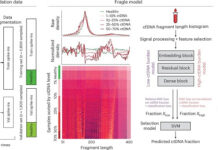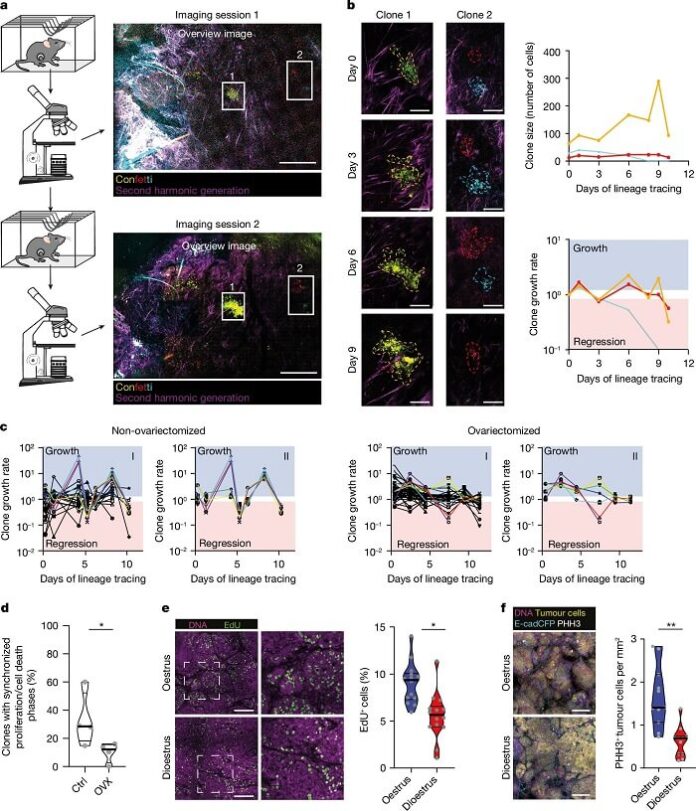Researchers at the Netherlands Cancer Institute have discovered that the stage of the estrous cycle significantly affects the sensitivity of mammary tumors to chemotherapy. In a study published in Nature, they found that chemotherapy initiated during the diestrus stage in mouse models of breast cancer was less effective compared to treatment started during the estrus stage.
The human body relies on internal biological clocks, including infradian rhythms such as the menstrual cycle, to adapt to environmental changes. Hormonal fluctuations during these cycles regulate various physiological processes, which may influence therapeutic responses in diseases like breast cancer.
This study, titled “The estrous cycle stage affects mammary tumor sensitivity to chemotherapy,” highlighted how different stages of the estrous cycle alter the efficacy of neoadjuvant chemotherapy (NAC) for breast cancer. Using three mouse models and retrospective analyses of human clinical data, the researchers identified significant variations in chemotherapy response depending on the cycle stage. Treatment during diestrus was associated with reduced chemosensitivity, while initiation during estrus yielded better outcomes.
As reported by medicalxpress, the findings revealed systemic and localized changes during the diestrus stage, including increased numbers of chemoresistant mesenchymal cells, narrower blood vessels, and a higher prevalence of macrophages—cells previously linked to chemoresistance. The reduced tumor vessel diameter during diestrus may hinder effective drug delivery, while the elevated macrophage levels appear to contribute to diminished treatment efficacy. Notably, even though NAC disrupted the estrous cycle, macrophage prevalence remained elevated, sustaining the reduced therapeutic response.
Importantly, depleting macrophages in the diestrus phase improved chemotherapy outcomes, underscoring their role in mediating chemoresistance. These findings suggest that the estrous cycle is a key factor in determining chemosensitivity, and optimizing the timing of chemotherapy in relation to menstrual or estrous cycles could enhance treatment outcomes in breast cancer patients. Future clinical studies are needed to explore the potential of cycle-based therapy scheduling.
























